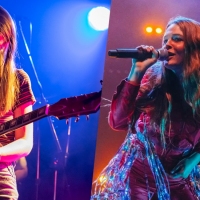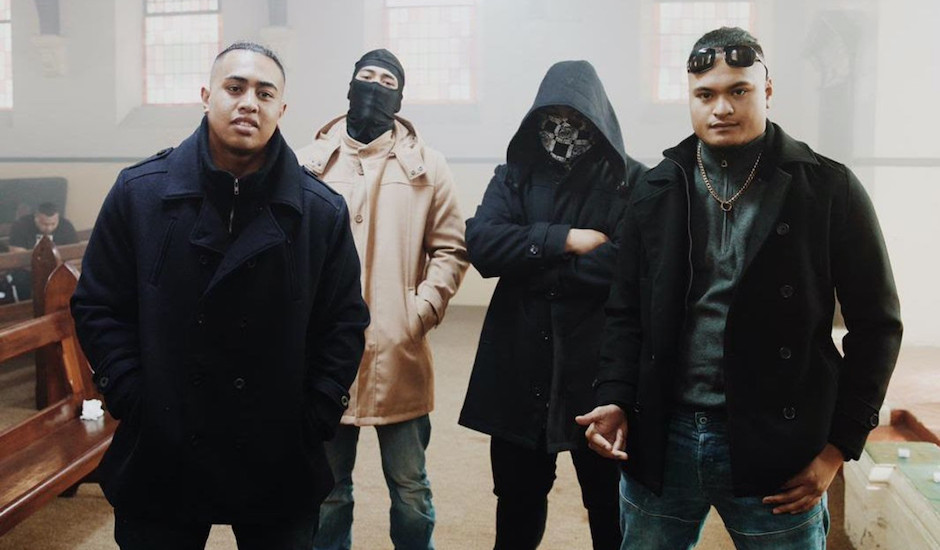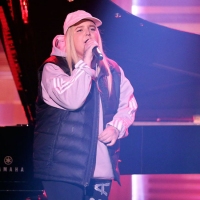 In 2019, why are we still not respecting female musicians on stage?Time and time again, female musicians are being harassed by the people that have paid to see them - and it's not on.
In 2019, why are we still not respecting female musicians on stage?Time and time again, female musicians are being harassed by the people that have paid to see them - and it's not on.

The War On Rap: Why are police trying to shut down hip-hop?
Off the back of recent show - and full tour - cancellations of OneFour and Huskii, it’s clear that Australia’s police force has a problem with rap music.
Back in September, the New York District Court questioned whether rap lyrics and music videos can be used as evidence in a court setting. In this case, the specific example was against Tekashi 6ix9ine - the district court wishing to use lyrics from his single GUMMO as evidence of actions of the Nine Trey Gangsta Bloods gang he was associated with - but it reignited a debate that’s arisen multiple times over the last two decades, concerning everything from gang affiliation to physical abuse and general hostility against police (“speech may not be banned on the ground that it expresses ideas that offend,” said the US Supreme Court in a specific example back in 2017).
In Australia, the government’s complex relationship with hip-hop doesn’t even scratch the surface of that in the US, but as we’ve repeatedly found in the past few months, that doesn’t mean it’s all ‘sunshine and rainbows’. In fact, quite the opposite, and it’s a problem worsening as the country’s hip-hop scene grows in both size and diversity.
The most publicised example of this - the underlying war against Australian hip-hop underway from the police - is the Sydney drill group OneFour, a hip-hop outfit born out of Western Sydney’s Mount Druitt whose shows are at threat of constant cancellation from the New South Wales Police. Despite the group being one of Australia’s greatest rap assets - they’ve been called “the next big thing” from territories as far as the US and UK - OneFour are constantly being shut down: Their show supporting UK rapper Octavian was cancelled back in August, and this weekend, their headline show in Melbourne - the first of a national, headline tour - met the same fate. (Note: In the time since publication, their show in Adelaide this Wednesday has also been cancelled, and the entire tour is now unlikely to go ahead.)
It’s the product of what the police are calling ‘Strike Force Imbala’, a 20-strong contingent of the New South Wales police force that, in the week before OneFour’s supporting slot for Octavian was cancelled, announced that they’d be targetting “gangs” such as the group to minimise the ‘threat’ towards the general public. “This is the third time the NSW Police have pressured the venue we were due to perform at and it’s getting fkn frustrating,” VICE reported OneFour saying when the show with Octavian was cancelled. “They want us to get off the street, yet they won’t give us a chance to.”
While many - including us - may argue that Australia’s rap scene is undergoing a reinvention to rival that of the international scene, it’s something being fought against by a government seemingly unexpecting of what may blossom into one of the country’s biggest cultural successes. OneFour is prime evidence of this. They’re an act to rise despite the systematic odds stacked against them; an outfit shouting for change while inflicting change in the process. OneFour, as they say themselves, is an avenue for the group’s members to take themselves out of the backgrounds that prevent them from succeeding, showing others in the same circumstance that they too can break free from societal shackles.
It’s hard not to see the New South Wales Police’s targetting of OneFour as an example of the racism that’s caused UK’s drill scene - where the culture has grown to become one of the country's most popular pockets of hip-hop, alongside Grime - meet similar fates. Members of OneFour have criminal backgrounds, but so do other Australian musicians (white Australian musicians, that is) whose shows aren’t heavily regulated and shut down. Nothing has happened at a OneFour show to incite this targeting - they’ve played club shows since their inception, and even performed a song with The Kid LAROI. supporting JuiceWRLD this very same weekend - yet the potential threat of violence (according to police), is apparently so strong that the shows can’t go ahead.
It’s a problem not unique to OneFour either. Wollongong-born drill rapper Huskii is another facing threat from the police, told that if he steps inside a licenced venue - even to just perform - it’ll be a “breach of his bail” conditions, and he’d be “sent back to jail.” In a message posted onto his Instagram Story, Huskii claimed that the police were working to prevent him from performing, despite judges making bail conditions that would allow him too. “I spoke with the judge about having to do live performances, so she made in my bail conditions that I have no curfew and I can travel anywhere in Australia, I just have to report to the police station,” he says.
“The police have made phone calls to all the venues I plan on working at in the future, and told them they’ll be waiting there to arrest me on the night of the show. It’s red hot how they are trying to stop Australian rappers at a time where the scene is making such an impact on culture.” In a separate tweet, he claimed that his application for bail variation was denied, meaning that Huskii - someone building himself a better life off hip-hop success, is no longer capable of doing so.
For both OneFour and Huskii, the police’s relentless pursuit to shut them down is destroying their abilities to become the rap success stories they’re heading towards being. In both examples, they’re rappers trying to give themselves a better life off the streets; the police preventing that very thing from happening as they’re scared of what it may bring (despite no previous show violence in the past). Let them play, let them make an example of how anyone - even those with everything against them - can take themselves off the streets and better themselves.
Stop threatening a culture with the potential to become one of the country’s biggest artistic moments. As Briggs says: “Let the boys play. Let them thrive and be great.” If you’re going to encourage people to pick themselves and keep out of trouble, at least give people the opportunity to do so.
Follow OneFour: FACEBOOK
Follow Huskii: FACEBOOK
 In 2019, why are we still not respecting female musicians on stage?Time and time again, female musicians are being harassed by the people that have paid to see them - and it's not on.
In 2019, why are we still not respecting female musicians on stage?Time and time again, female musicians are being harassed by the people that have paid to see them - and it's not on.
 Tones And I & Tall Poppy: Celebrating Australia's biggest success in a decadeFor the first time since Gotye, one of the biggest musicians in the world is Australian. It’s a shame that people don’t want to celebrate that.
Tones And I & Tall Poppy: Celebrating Australia's biggest success in a decadeFor the first time since Gotye, one of the biggest musicians in the world is Australian. It’s a shame that people don’t want to celebrate that.